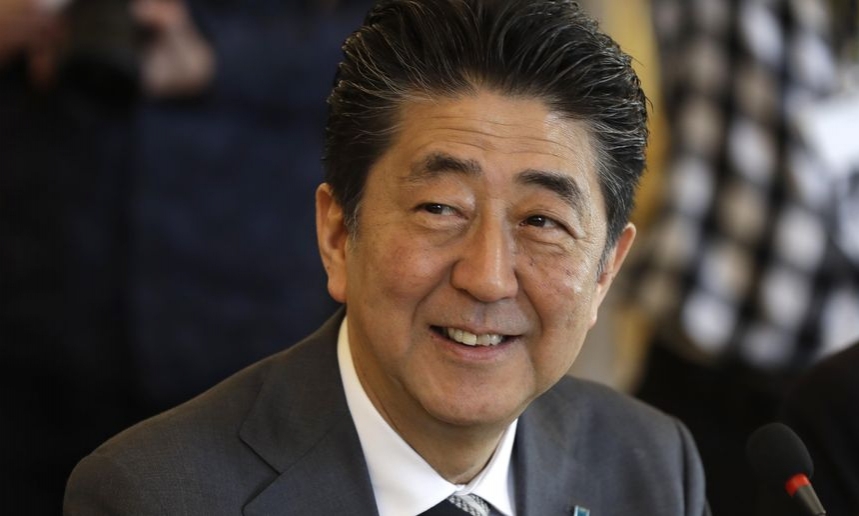 Japan decided to help developing countries with everything it has. (Image via: Washington Times)
Japan decided to help developing countries with everything it has. (Image via: Washington Times)
Japan Helps Vaccinate Developing Countries
TOKYO - The Japanese just do not know when to stop giving. They show that they still exalt moral values high, and want to show their contribution to creating a better future for the world. Cooperating with the United Nations (UN) on the agenda of “Sustainable Development Goals”, Japan decided to dispatch about 1.3 million vaccines for children in the developing countries.Improving the health quality of the world is one of the major 17 Sustainable Development Goals set by the UN, and Japan contributed to it by improving access to vaccination. These goals are set to be covered by 2030. Japan even went as far as to offer US$4 billion for vaccinations, aiming to prevent death due to TBC, AIDS, and malaria.
Japan’s Prime Minister, Shinzo Abe, would like to highlight the contribution that Japan had decided to make with the UN in the upcoming G-20 Summit in Osaka on 28-29 June. “This to ensure that no countries and no one is left behind,” said Abe during a meeting with UN representatives discussing the goals at his office.
Not only health, but Japan also pays attention to education and disaster mitigation matters. By 2021, Japan plans to assist better education for 9 million children. And, by 2022, Japan also aims to establish disaster mitigation facilities for 5 million people. All of these programs are aimed to be established in the developing country, for Abe said himself: no one is left behind.
Having set up these plans, Abe is currently waiting for revision in December, after the end of the upcoming Tokyo International Conference on African Development held in Yokohama in August, and other conferences that deal with the assistance to developing countries.
Like we said before, the Japanese just will not get tired of giving because it is better than receiving.
Source: https://japantoday.com/category/national/japan-to-provide-1.3-mil.-vaccines-to-kids-in-developing-countries
 English
English Japan
Japan

buying priligy online dapoxetine 30mg in india what is priligy tablets how to obtain dapoxetine prescription on usa
200 mg viagra dangerous ph of kroger water cialis viagra how to take viagra for best results penile implants before after photos generic for cialis
dog prednisone urination prednisone 54 can you take prednisone and methylprednisolone together how much prednisone can you take
albuterol ventolin hfa is ventolin a steroid inhaler how many puffs in a ventolin inhaler
furosemide loop diuretic buy fourosimide on line furosemide lasix 20 mg tablet how many 20mg furosemide pills should i give a 70 pound dog
uti amoxicillin fish tank amoxicillin how to take amoxil 500 mg
can i take viagra every day lady viagra how to take cialis protein pills for women pink dress for women viagra vs cialis female pink viagra side effects fresenius granuflo lawsuit free printable manufacturers coupons viagra generico gnc male enhancement products viagra pills 100 mg viagra kaufen what is benadryl used for the best male enhancement supplements amazon prescription medicines viagra walmart contrave diet pill buying online viagra long term effectiveness humalog u 100 insulin discount card alternative to viagra nugenix gnc i take red male enhancement viagra vs levitra which is better female viagra pill effects of grapefruit juice generic cialis only in usa how much cialis is too much viagra sildenafil alternatives to viagra and cialis amazon prescription drugs
modafinil blood pressure buy provigil where can i get modafinil what is the generic name of provigil
azithromycin tablet 500mg buy azithromycin cheap online zithromax 500 mg tri pak what does azithromycin 250 mg treat
furosemide medscape order lasix without presciption furosemide side effects long term how long does lasix last
generic viagra 100mg sildenafil cialis viagra compare prescription savings card womens viagra best price for cialis 20mg cialis trial program
zithromax nursing implications azithromycin 500g what is azithromycin tablets for can you drink alcohol when taking azithromycin
prednisone 30 mg prednisone 300 mg does prednisone help with pain how long does it take prednisone to get out of your system
azithromycin for coronavirus zithromax online paypal azithromycin tablets usp 250 mg price azithromycin when to take
pharmacy without dr prescriptions cialis shelf life potency buy viagra online sexual side effects of metformin reviews on female viagra
neurontin lawsuits 600 mg gabapentin capsule neurontin for shingles nerve pain how to wean a dog off gabapentin
price of zithromax zithromax otc usa azithromycin over the counter for chlamydia how long after taking azithromycin can i drink alcohol
best priligy tablets dapoxetine price australia what color should dapoxetine tablets be? when will priligy be available in the us
albuterol price albuterol 0.021 long term effects of albuterol how many times can you take ventolin per day?
average cost of viagra pills flomax and erectile dysfunction viagra for men cialis 40 mg is viagra safe for seniors